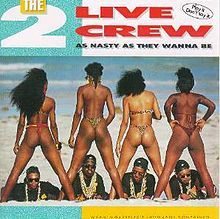“Punting the Pundits” is an Open Thread. It is a selection of editorials and opinions from around the news medium and the internet blogs. The intent is to provide a forum for your reactions and opinions, not just to the opinions presented, but to what ever you find important.
Thanks to ek hornbeck, click on the link and you can access all the past “Punting the Pundits”.
Follow us on Twitter @StarsHollowGzt
Ana Marie Cox: Don’t fear the Koch brothers. Fear an election that caters only to billionaires
Forget right or left. Dark money in politics means you’ll never know which ‘independent’ candidate’s views were on the market
Popular sentiment may tie the GOP and the infamous Koch brothers to unregulated campaign financing – while Democrats rail against it – but the post-Citizens United world can’t be understood within the framework of party politics. Citizens United isn’t good for one party and bad for another; it’s good for rich people and bad for everyone else.
The Koch brothers’ place in American politics as the big-spending bogeymen changing electoral outcomes with gobs of cash will find some help this week with the release of the documentary Citizen Koch and the book Big Money (by Politico reporter Ken Vogel), a good portion of which narrates the battle between the Koch brothers and Karl Rove for the soul of the Republican Party, such as it is.
Richard (RJ) Eskow: Washington’s Cold Shoulder for Defrauded Students and Soldiers
President Obama signed an executive order Monday limiting student debt payments to 10 percent of their income, telling an audience in the East Room of the White House that he and his wife only paid off their law school loans about 10 years ago. “This is why I feel so strongly about this,” the president said. “This is why I’m passionate about it.”
We’ll take him at his word, although it means disregarding the principle that says that those who truly feel passionately about something rarely feel the need to declare it. We’re glad he feels so strongly about an issue that is both an economic crisis and a moral challenge.
Judge Rolf M. Treu, who decided the Vergara case, declared that he was shocked — shocked! — to learn from Professor Raj Chetty and Professor Thomas Kane of Harvard about the enormous harm that one “grossly ineffective” teacher can do to a child’s lifetime earnings or to their academic gains.
How did he define “grossly ineffective” teacher? He didn’t. How did these dreadful teachers get tenure? Clearly, some grossly incompetent principal must have granted it to them. What was the basis — factual or theoretical — that the students would have had high scores if their teachers did not have the right to due process? He didn’t say.
John Nichols: Eric Cantor Loses to a Conservative Who Rips Crony Capitalism
The DC-insider storyline about this being a great year for the Republican establishment might need to be rewritten. And the rewrite might even require pundits, Republican chieftains and Democrats who are trying to figure out the politics of 2014 to consider complexities they had not previously entertained.
House majority leader Eric Cantor, the face of the GOP establishment and one of its most prodigious fundraisers, lost his Virginia Republican primary Tuesday to a challenger who promised, “I will fight to end crony capitalist programs that benefit the rich and powerful.”
Dave Brat, who defeated the number-two Republican in the House by a 56-44 margin, ripped big business almost as frequently as he did the incumbent. “I am running against Cantor because he does not represent the citizens of the 7th District, but rather large corporations seeking insider deals, crony bailouts and a constant supply of low-wage workers,” declared the challenger.
Cantor dismissed Brat as a “liberal college professor.”
That was false-at least the liberal part.
Wenonah Hauter: Trans-Atlantic Trade Deal a Field Day for Fracking
U.S. and EU negotiators recently began a new round of negotiations on the Transatlantic Free Trade Agreement. Because the talks are happening behind closed doors, the public is left largely in the dark about the nature of the discussions over a deal also known as the Transatlantic Trade and Investment Partnership.
So what, exactly, do we know?
Officially, not much. But an EU negotiation position “on raw materials and energy” was leaked to the Huffington Post in May. The text amounts to a wish list of demands from Big Oil and Gas that would lock in any of their investments in fossil fuels in general, and shale gas and fracking in particular.
Article C of the document states that no restrictions should apply to the “exports of energy goods” between the transatlantic trade partners. Any request, for example, for an export license to ship natural gas from the United States to the EU would be approved “automatically.”
That means no questions asked, even if this arrangement could lead to environmental damage from widespread use of fracking, increased gas prices for U.S. consumers, increased import dependency, and other problems.
Ben Wolcott: Austerity and the Employment Rate
In 2010, after an initial round of coordinated stimulus from both wealthy and developing countries, deficit hawks around the world regrouped. Pointing to growing deficits and debt, they demanded that countries reverse course and begin moving toward balanced budgets. The deficit hawks argued that deficit reduction could be accomplished without impairing growth because of the effect it would have in boosting confidence among businesses and consumers.
Many economists argued against this drive towards austerity at the time. They noted and rigorously explained the fallacious logic in the idea that deficit reduction could be expansionary. They also pointed out how fiscal policy had already saved the economy from a second depression and that more stimulus would likely be necessary. However, now we have more than three years of data, so we no longer have to speculate. A simple picture can be worth a thousand words (or in this case, billions).






Recent Comments